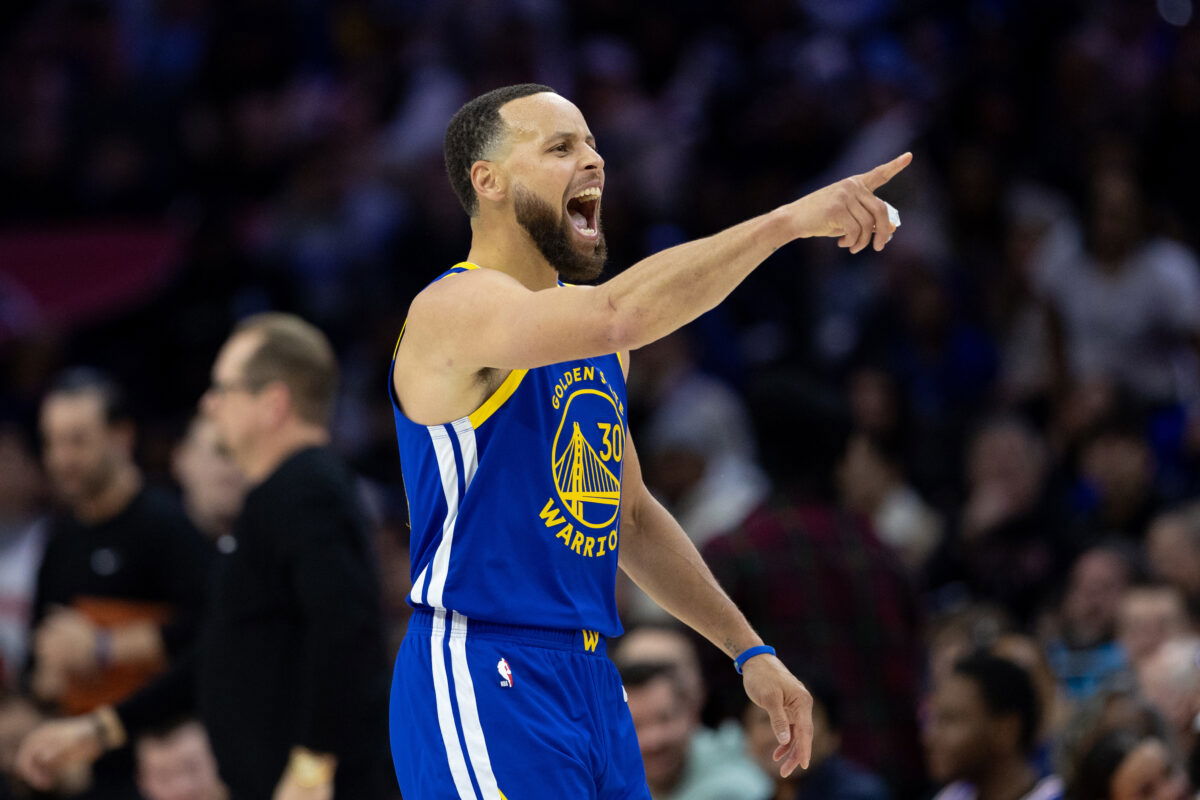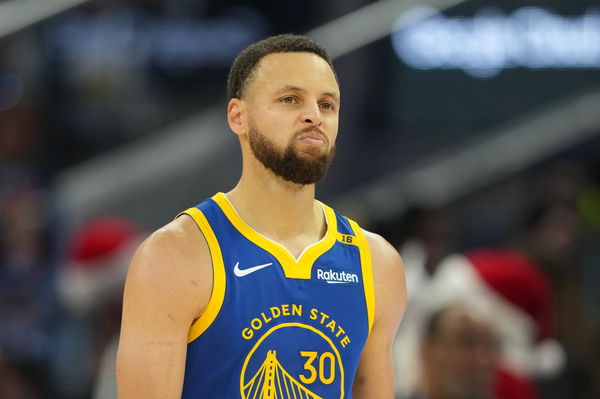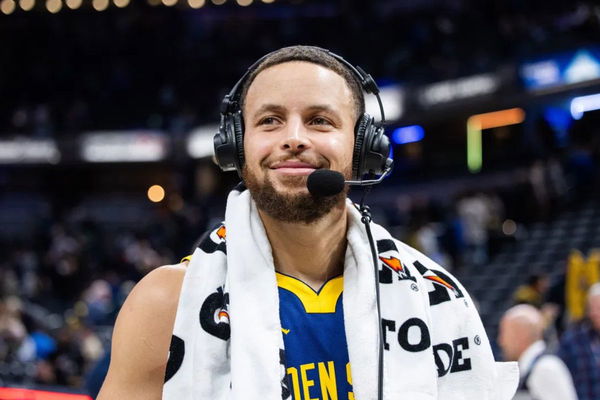
Imago
Mar 1, 2025; Philadelphia, Pennsylvania, USA; Golden State Warriors guard Stephen Curry (30) reacts after his dunk against the Philadelphia 76ers during the fourth quarter at Wells Fargo Center. Mandatory Credit: Bill Streicher-Imagn Images

Imago
Mar 1, 2025; Philadelphia, Pennsylvania, USA; Golden State Warriors guard Stephen Curry (30) reacts after his dunk against the Philadelphia 76ers during the fourth quarter at Wells Fargo Center. Mandatory Credit: Bill Streicher-Imagn Images
When you think of Stephen Curry today, the image is clear: four-time NBA champion, two-time MVP, Finals MVP, Olympic gold medalist, and the greatest shooter the game has ever seen. But rewind to his college days at Davidson, and the picture wasn’t nearly as certain. A slender 6’2” guard from a mid-major program wasn’t supposed to transform basketball. He wasn’t supposed to challenge the all-time greats. Yet here we are, in 2025, with Hall of Fame journalists debating whether Curry now belongs in the top 10 players in NBA history.
Watch What’s Trending Now!
It’s a story of transformation, overachievement, and relentless work ethic. From overlooked recruit to league-defining superstar, Stephen Curry has rewritten the rules of what’s possible for a guard of his size. But what exactly fueled that transformation? And how do those who’ve covered the game for decades explain his rise?
That’s where veteran voices like Bob Ryan and Jeff Goodman step in. Their insights shed light on the one change that may have made the biggest difference in Stephen Curry’s journey from Davidson darling to global icon.
Stephen Curry’s college career at Davidson (2006–2009) was electric. He averaged 25.3 points per game, led the nation in scoring as a junior, and carried a 10th-seeded team to the Elite Eight. His dazzling three-point shooting made him must-see TV, but skeptics weren’t convinced it would translate to the NBA.
Why? For one, his size. At just 185 pounds, Curry looked too small to withstand NBA physicality. Second, his position was in question. Could he really be a point guard? Scouts wondered if he could run a team rather than just score. And finally, the biggest red flag: defense. As Jeff Goodman bluntly put it, “Coming out of Davidson, he could not guard anybody.”

Imago
Dec 25, 2024; San Francisco, California, USA; Golden State Warriors guard Stephen Curry (30) during the fourth quarter against the Los Angeles Lakers at Chase Center. Mandatory Credit: Darren Yamashita-Imagn Images
So while the Golden State Warriors drafted him 7th overall in 2009, behind stars like Blake Griffin and James Harden, no one projected that 15 years later, Stephen Curry would be discussed alongside Magic, Bird, and LeBron.
Legendary journalist Bob Ryan puts Curry’s rise in perspective: “I don’t think anyone would have projected that we’d be having a conversation in 2025 in which we were trying to figure out where, in the top 10 or 15 historically, he ranks.”
Ryan stresses that very few all-time greats were pegged as sure things in high school. Kareem Abdul-Jabbar, Wilt Chamberlain, and LeBron James were exceptions. Most others, even Bird and Magic, ended up better than people expected. And yet, in Ryan’s eyes, Stephen Curry represents the very pinnacle of overachievement.
“He’s the greatest shooter of all time,” Ryan emphasizes. “That’s got to stand for a lot.” For a player dismissed as too slight, too limited defensively, and too positionally uncertain, to now stand in legitimate top-10 discussions, Ryan admits, it forces him to “amend his pecking order.”
Jeff Goodman: The Biggest Change in Curry’s Game
If Ryan highlights the overachievement, Jeff Goodman pinpoints the biggest transformation. The two glaring questions coming out of Davidson were whether Curry could run an NBA offense and whether he could defend.
On the first point, Curry silenced critics. Across his career, he has averaged nearly seven assists per game, peaking at 8.5 in 2013–14. Under Steve Kerr, his ability to blend scoring with playmaking became the engine of the Warriors’ dynasty. Off the ball, his constant movement, compared to legends like Ray Allen and Reggie Miller, took the concept of a point guard to an entirely new level.
But it’s on defense where Goodman sees the greatest change. “Over time, he turned himself into what I’d consider an above-average defender,” Goodman says. That single shift kept Curry on the floor during the highest-stakes moments. No longer a liability, he learned how to use positioning, anticipation, and quick hands to stay competitive against elite guards.
The numbers support this. Curry ranks 24th all-time in steals and has totaled 17.7 defensive win shares, solid production for someone once considered unplayable on defense. In playoff series like the 2023 matchup with the Sacramento Kings, his defense on De’Aaron Fox directly swung momentum.
That defensive growth, Goodman argues, is what unlocked everything else. It’s what allowed Curry’s shooting brilliance and playmaking to shine without compromise.

Imago
Credit: Imagn
Of course, any conversation about Stephen Curry must return to his shooting. He holds the NBA record for career three-pointers (3,878 and counting) and once hit 402 in a single season. His efficiency remains stunning: 42.6% from deep and 91% from the line. By every measure, he is the greatest shooter of all time.
But beyond numbers, Curry changed basketball itself. When he entered the league in 2009, teams averaged 18 threes per game. Today, that number has doubled to more than 35. His “gravity”, the way defenses stretch to contain him 30 feet from the basket, opened the floor for teammates and redefined offensive strategy.
It’s no wonder Doc Rivers once said, “Only the great-greats change the game. What he’s doing is revolutionary.”
Where does this leave Stephen Curry historically? Ryan places him firmly in the top 10–15, with legitimate arguments for higher. His resume, four championships, two MVPs (including the first unanimous MVP ever), a Finals MVP, and an Olympic gold medal, stacks up with the legends.
Comparisons abound. Larry Bird may have been a more complete defender, Magic Johnson a purer passer, and Shaquille O’Neal a more dominant force. But Curry’s impact, both statistically and culturally, is undeniable. He didn’t just win; he changed how the game is played.
Even at age 36, he’s still delivering. In the 2024–25 season, he averaged 26.9 points per game, set a career first by going 8-for-8 from three in one game, and surpassed Michael Jordan for most 30-point games by a guard aged 35 or older. The overachiever keeps rewriting history.
From questions about whether he could even defend, to reshaping the geometry of the NBA floor, Stephen Curry’s rise is as improbable as it is revolutionary. Journalists like Bob Ryan and Jeff Goodman capture it best: Curry is the rare superstar who not only silenced every doubt but also changed the very game around him.
So now the question is yours: Where do you rank Stephen Curry among the all-time greats, just outside the top 10, firmly inside it, or even higher?

